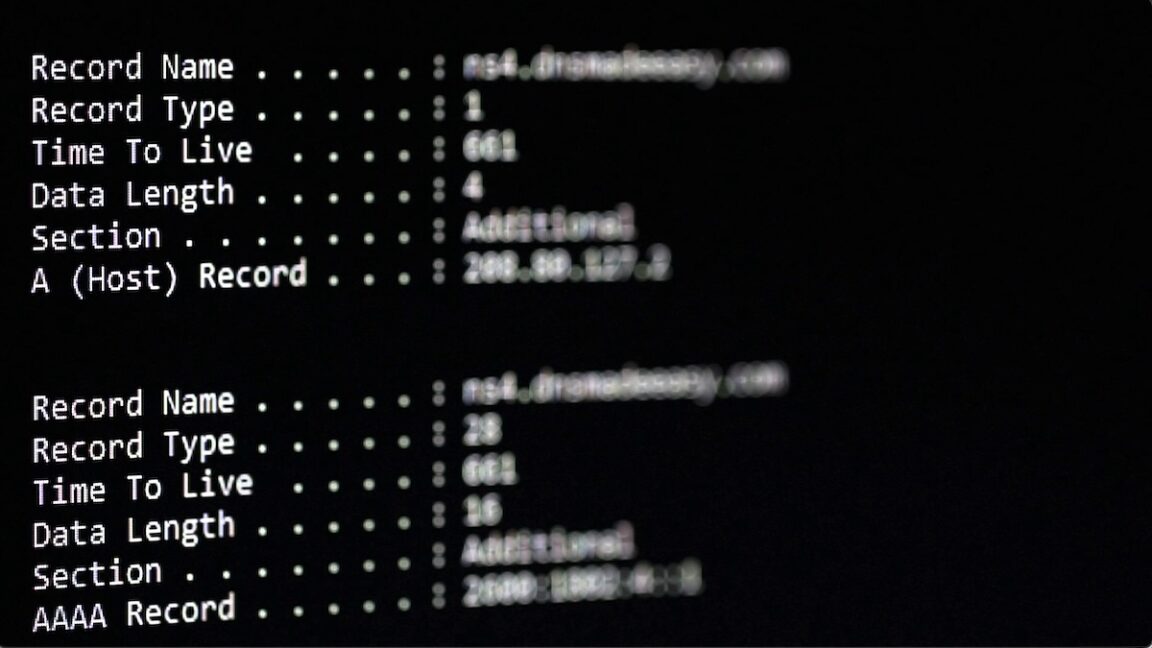“In specific circumstances, due to a weakness in the Pseudo Random Number Generator (PRNG) that is used, it is possible for an attacker to predict the source port and query ID that BIND will use,” BIND developers wrote in Wednesday’s disclosure. “BIND can be tricked into caching attacker responses, if the spoofing is successful.” CVE-2025-40778 also raises the possibility of …
Read More »Tag Archives: DNS
A Common DNS Error Appears to Have Caused a Major AWS Outage
A DNS error appears to have been the culprit behind a major Amazon Web Services outage at its oldest and largest data center. Early Monday morning, Amazon’s AWS experienced an outage that brought down more than 100 of its services. Platforms like Snapchat, Reddit, and Venmo that use AWS for hosting servers and delivering content all suffered the impact, as …
Read More »This Week In Security: DNS Oops, Novel C2s, And The Scam Becomes Real
Something rather significant happened on the Internet back in May, and it seems that someone only noticed it on September 3rd. [Youfu Zhang] dropped a note on one of the Mozilla security mailing lists, pointing out that there was a certificate issued by Fina for 1.1.1.1. That IP address may sound familiar, and you may have questions. First off, yes, …
Read More »Mis-issued TLS Certificates for 1.1.1.1 DNS Service Enable Attackers to Decrypt Traffic
The discovery of three improperly issued TLS certificates for 1.1.1.1, the popular public DNS service from Cloudflare, and the Asia Pacific Network Information Centre (APNIC). The certificates, which were issued in May 2025, could allow attackers to intercept and decrypt encrypted DNS lookups, potentially exposing users’ browsing habits. The existence of the unauthorized certificates was brought to public attention on …
Read More »Hackers exploit a blind spot by hiding malware inside DNS records
Hackers are stashing malware in a place that’s largely out of the reach of most defenses—inside domain name system (DNS) records that map domain names to their corresponding numerical IP addresses. The practice allows malicious scripts and early-stage malware to fetch binary files without having to download them from suspicious sites or attach them to emails, where they frequently get …
Read More »


